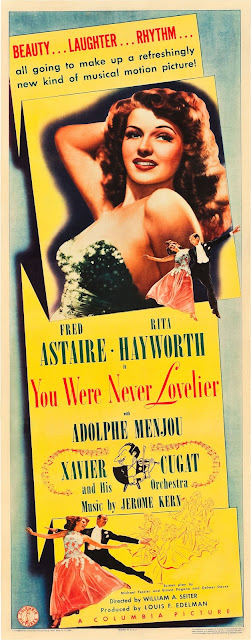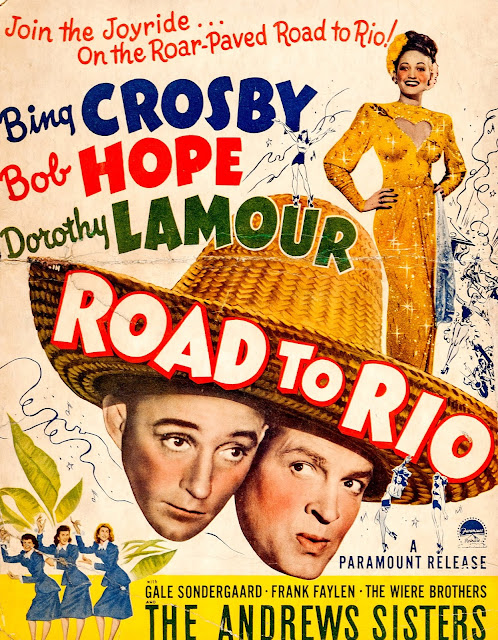100 Years of Judy Garland
She was a torch singer, a comedienne, a gay icon, a hoofer, a mother, an actress, a pillar of the movie musical, and one of history’s most illustrious entertainers all wrapped in one magical package. She was Judy Garland and today would’ve been her 100th birthday.
For almost the entirety of those 100 years, Judy has been sweeping people off of their feet with her genius. A Judy Garland performance is an experience, an emotional awakening that overwhelms you with its sheer humanity and honesty. Abused by a system that claimed to love her, she struggled to find stability and happiness, and still she gave us everything and protected nothing. Instead of shielding even one small part of herself, one piece that was hers and hers alone, Judy laid it all bare on and off the screen: her anguish, her addictions, her loneliness, her bliss, her self-doubt. Witnessing her pain is excruciating, but it is also what makes us feel so close to her. We recognize her wounds and she recognizes ours.
With her intense vulnerability and personal battles, not to mention the beloved films she made as a teenager that reverberated throughout her career, Judy became immortalized as forever our little girl lost. Despite her very adult tribulations — abortion, alcoholism, a dependency on pills, suicide attempts — her persona was rooted in a purity that stemmed from her growing up before our eyes. Her films further cultivated this. She rarely portrayed lust onscreen, for one thing; her characters desired great stage careers or profound romance or Mickey Rooney, not sex. She also inspired in her audiences a wish to rescue and comfort her. When director Charles Walters read the initial script for Easter Parade, whose male lead was originally Gene Kelly before he was injured, Walters knew there needed to be revisions, especially to Kelly’s Pygmalion-like character: “The audience is going to hate you, Gene, for what you’re doing to this poor girl. Because, don’t forget, Judy is always sympathetic.”
Glamour wasn’t quite part of her persona, either. In many of her movies, she would find herself up against a more sophisticated foe, someone who heightened her insecurities and made her doubt her leading man’s devotion. And yet it amplified the audience’s love for her. Although she very much longed to be a glamour girl like Lana Turner or Elizabeth Taylor and felt ugly next to them, Judy and her characters won the day with their sincerity, their stick-to-itiveness, and, most importantly, their astonishing, once-in-a-lifetime talent. While she actually could pull off glitziness (contrary to what she believed), it doesn’t completely fit her image, maybe because she was so earthy and natural in real life. In fact, she and her characters often mock the impracticality and self-seriousness of glamour, its artificiality a mismatch for a woman whose very name evokes a homespun feeling, as if she were a neighbor or a girl you went to school with if you lived in her era. (“Did you see that lovely new hat Judy Garland wore in church today?”)
Within seconds of seeing her perform, though, it is undeniable: Judy was born to be a show business legend. Her lush vocals, adorable demeanor, and spot-on performance instincts transformed her from a vaudeville baby into a bona fide star by the age of 16, when she made her lasting mark on pop culture and cinema with The Wizard of Oz. That film alone would’ve been enough to keep Judy’s name alive, but for the next several years she gave stellar turns in films like Meet Me in St. Louis, Girl Crazy, The Clock, For Me and My Gal, and Summer Stock, all of which were elevated just by her presence.
And of course, as a recording artist, she had no equal. Whether cooing ballads or belting showtunes, she holds us in the palm of her hand and, as the audio from her live albums can attest, we can’t get enough of it.
xxx
In spite of her troubles, I refuse to see Judy Garland as strictly a cautionary tale to be gossiped about and pitied because there is so much joy to be found in her career. Her films and her voice are places to seek shelter, to escape to when there are clouds hiding that rainbow. Lucille Ball called her the funniest person in Hollywood; other friends like June Allyson and Van Johnson would remember her laughter first and foremost, not her demons (although they certainly remembered those, too). Her love for silliness is obvious in her work: her banter between songs on The Judy Garland Show and her concert album Judy at Carnegie Hall is self-effacing and fun, while her movies showcased over and over again her comedic brilliance. An unabashed ham, Judy reveled in numbers like The Pirate’s “Be a Clown” and Easter Parade’s “A Couple of Swells,” routines I cannot imagine any other female star doing during that period. Moments such as her slapstick meet-cute in In the Good Old Summertime, her meek, gun-toting march into a rowdy saloon in The Harvey Girls, and the many funny faces she pulls in Easter Parade offer more explicit examples of her comedy, but her line readings are just as devastatingly hilarious.
I further can’t accept Judy as a tragic figure because she fought so damn hard and I can’t let that be in vain. When she was let go by MGM in 1950 — the studio she gave her life to, the studio that put pills in her hands and pointed out her weight and worked her to the point of exhaustion but then turned its back as she spiraled — she became a record-breaking concert entertainer and then returned to Hollywood with her greatest achievement, the magnificent (and, in a way, self-damning) A Star Is Born. When that film didn’t lead to more opportunities like it should have, Judy pivoted and became the first woman to win the Grammy Award for Album of the Year in addition to delivering searing performances in Judgment at Nuremberg, A Child Is Waiting, and I Could Go On Singing.
Judy Garland has been with me for most of my life, ever since I became obsessed with The Wizard of Oz as a little girl. There was (and still is) so much I adored about that movie, but it all started with Judy. I felt in my bones her aching to return to Kansas, her fear of the Wicked Witch, her sorrow when she has to leave her new friends, and her elation when she wakes up back in her room. It’s a performance that still shakes me to my core because it is such a hypnotic distillation of her power. When she croons “Somewhere Over the Rainbow,” it isn’t just a song — it is an expression of yearning, of dreaming, that is so potent it leaves you breathless and teary-eyed.
Sung by Judy, the final line of “If happy little bluebirds fly beyond the rainbow, why, oh, why can’t I?” throbs with a poignancy that could only come from her. With a catch in her throat, she translates the lyrics into questions that have long swirled around in my head: why did she have to face so many heartaches? Why did life have to be so difficult for her? Why did MGM and others treat her so horrifically? If other stars could survive the system, why, oh, why wasn’t she allowed to? She is a voice, a pair of eyes (those big, beautiful Garland eyes), a performer who can shatter you and then lovingly piece you back together. She deserved so, so much… but all I seem to have are my words. Then again, I think Mickey Rooney said it better than I ever could: “Judy, as we speak, has not passed away. She’s always with me in every heartbeat of my body.”
Happy birthday, Judy.
______________________________________
A version of this article was originally published on Establishing Shot, IU Cinema's blog.
.jpg)
.jpg)
.jpg)
.jpeg)
.jpg)

.jpg)
%201.jpg)











Lovely tribute. So well written and expressed.
ReplyDeleteThank you! I poured a lot into this article, so I really appreciate it.
DeleteHow different is the end of this story if Judy Garland won the Oscar for A Star is Born?
ReplyDeleteThat's a good question! She might have gotten better film offers if she had won, which could've helped the financial issues she continually ran into, but she still had a reputation for being difficult that was pretty powerful. (Although, like Marilyn Monroe, the results far outweigh the troubles, if you ask me.) She also had a major pill addiction that just couldn't be conquered, so it's tough to say if the Oscar would've made a difference at the end of the day. But she certainly deserved it!
DeleteI guess that's why "I Could Go On Singing" seems so biographical. But there is one moment in that movie that says it all. Watch her as she stands in the wings waiting to go on; she goes from never wanting to go on stage again, to energizing herself, to walking out to thunderous applause.....and all in the space of about 30 seconds. How amazing is that?
DeleteI loved this beautiful tribute -- and the lovely new-to-me photographs you selected to accompany it. It is certainly a fitting way to honor this once-in-a-lifetime star.
ReplyDeleteThank you! I loved finding these images. I hadn't seen many of them before myself, so it was great to discover them.
DeleteThis tribute is absolutely breathtaking, Michaela. I am applauding both you and Judy. Thank you for sharing.
ReplyDeleteAw, thank you! I really, really wanted to do Judy justice.
DeleteJudy Garland was offered movie parts after "A Star is Born." She was offered "Born in Wedlock," (I think Jerry Wald wanted her for that one), "The Three Faces of Eve," and "Carousel." But she apparently didn't want to take them on.
ReplyDelete